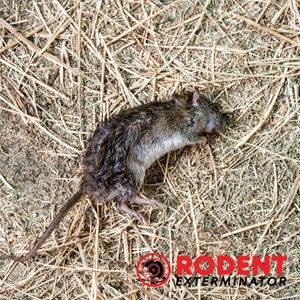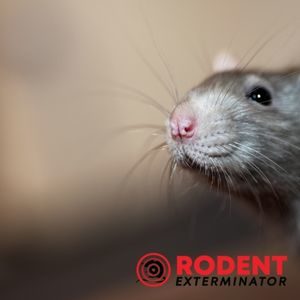Rodenticides are a type of pesticide that is designed to kill rats, mice, and other rodents.
There are many different types of rodenticides, and they can be found in many different forms. They work by killing rodents, and they are often very effective.
However, there are some things you need to know before using them.
The first is that there are different types of rodenticides, and each one works differently. The second is that you need to be careful when using them because they can be harmful if not used correctly.
Finally, you need to make sure you use the right type of rodenticide for the job.
What are rodenticides and what do they do?
Rodenticides are a type of pesticide that is designed to kill rats, mice, and other rodents.
It is used to kill or eliminate, control, prevent, repel or attenuate the presence or action of rodents, in any environment.
There are many different types of rodenticides available, some of which are fatal in just one or two days.
How many types of rodenticides are there?
There are many different types of rodenticides, and each one works a little differently. Some of the most common types include:
-
Anticoagulant rodenticides.
These work by preventing the blood from clotting, which eventually leads to death.
In agricultural and urban rodent control, anticoagulant pesticides are commonly utilized. However, this rodenticide is extremely dangerous to humans and pets.
This rodenticide is classified into:
- First-generation anticoagulants: It is a multi-dose, slow and expensive anticoagulant.
- Second-generation anticoagulants: All are single-dose products, require reapplications, and are dangerous to other useful species.
-
Bromethalin rodenticides.
These work by causing brain swelling.
Bromethalin is a neurotoxin that comes in the form of bars (blocks), pellets, seeds, and worms. It is a non-anticoagulant, single-dose rodenticide.
-
Cholecalciferol rodenticides.
This rodenticide works by causing organ failure.
This is one of the most lethal mouse and rat poisons available.
Cholecalciferol, also known as activated vitamin D3, raises calcium and phosphorus levels in the body to dangerously high levels, causing severe acute renal failure, cardiovascular problems, and tissue mineralization.
This can lead to life-threatening conditions. Despite the fact that it is a vitamin, it is harmful to dogs, cats, children, and rodents.
-
Non-anticoagulant rodenticides.
Non-anticoagulant rodenticides are the most common type of rodenticide. They work by causing the rodent to have a seizure, which leads to death.
They are effective and safe to use, but you need to be careful to use the right type of non-anticoagulant rodenticide for the job.
What is the most common rodenticide used?
Anticoagulant rodenticides are by far the most popular, and they’re regularly utilized in both accidental and intentional poisonings.
Anticoagulant rodenticides function by stopping blood from clotting, which causes death in the rodent.
They are effective and safe to use, but you must use the appropriate anticoagulant rodenticide for the purpose.
How effective are rodenticides at killing rodents?
Rodenticides are very effective at killing rodents. They work by poisoning the rodents, and they often work very quickly.
This makes them a very popular choice for pest control.
How to use rodenticides safely?
When using rodenticides, it is important to follow safety precautions:
- Pesticides should always be kept out of reach of children and dogs, such as in a closed utility cabinet or garden shed.
- Only put traps or baits in places where children and pets won’t be able to get to them.
- Rodenticides should never be stored near food, even pet food.
- Read and obey the rodenticides label’s directions.
- Remove and dispose of dead rat corpses as soon as possible to avoid unintentional poisoning of wildlife and pets that may eat them.
- Remove all packing from the bait station.
- If you’re utilizing more than one bait station, space them out 8 to 12 feet apart to get the most out of them.
- Continue baiting for at least four days without seeing any additional feeding activity.
- Check for rodents daily.
- Collect and properly dispose of dead rodents and leftover bait while wearing gloves.
What are the pros and cons of using rodenticides?
There are pros and cons to using rodenticides.
The pros include:
- Rodenticides are very effective at killing rodents.
- Rodenticides are available in many different forms.
- They are relatively affordable.
- Rodenticides quickly kill the rodent.
The cons include:
- Pets, other animals, and children are all in grave danger.
- Other creatures (bobcats, raptors, foxes, etc…) may be poisoned as a result of predation.
- It’s a cruel way to get rid of rodents.
- The rodent is in agonizing pain.
- They can be hazardous if used incorrectly.
- They have the potential to harm the ecosystem.
Are there any risks associated with using rodenticides in your home or business premises?
When it comes to employing rodenticides in your home or company, there are a few things to consider.
- The first danger is that if rodenticides are not administered properly, they can injure humans and pets.
- Another danger of using rodenticides is that they can harm other creatures, including birds.
- Rodenticides, or rat and mouse poisons, pose a major threat to public health and the environment.
- Have contact with the animal, its secretions, or any fluid from this rodent if you are unable to properly dispose of the deceased rodent body.
In conclusion, before using rodenticides, it is important to know what they are and how they work. There are many different types of rodenticides, and each one works a little differently.
You also need to be aware of the dangers of using them and take precautions when applying them. If you decide to use a rodenticide, make sure you choose the right type according to the infestation in your house.
Rodent Exterminator is happy to help you and make your home rodent-free. If you are in Los Angeles and you have a rat or mouse infestation, contact us and we guarantee the best results. Call us 213-431-0890.
